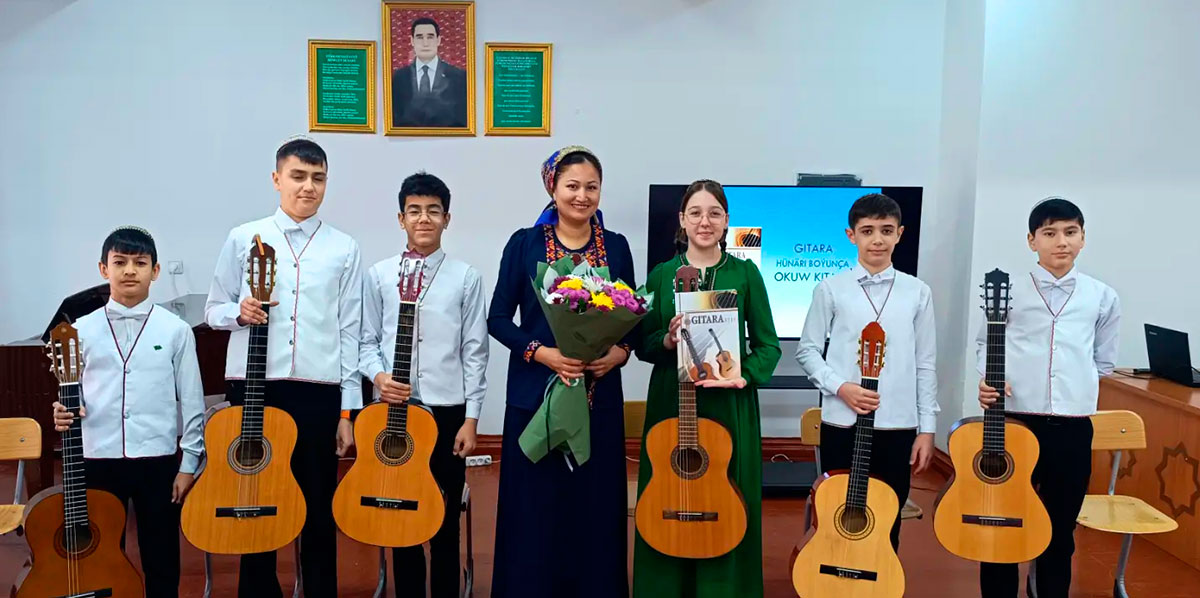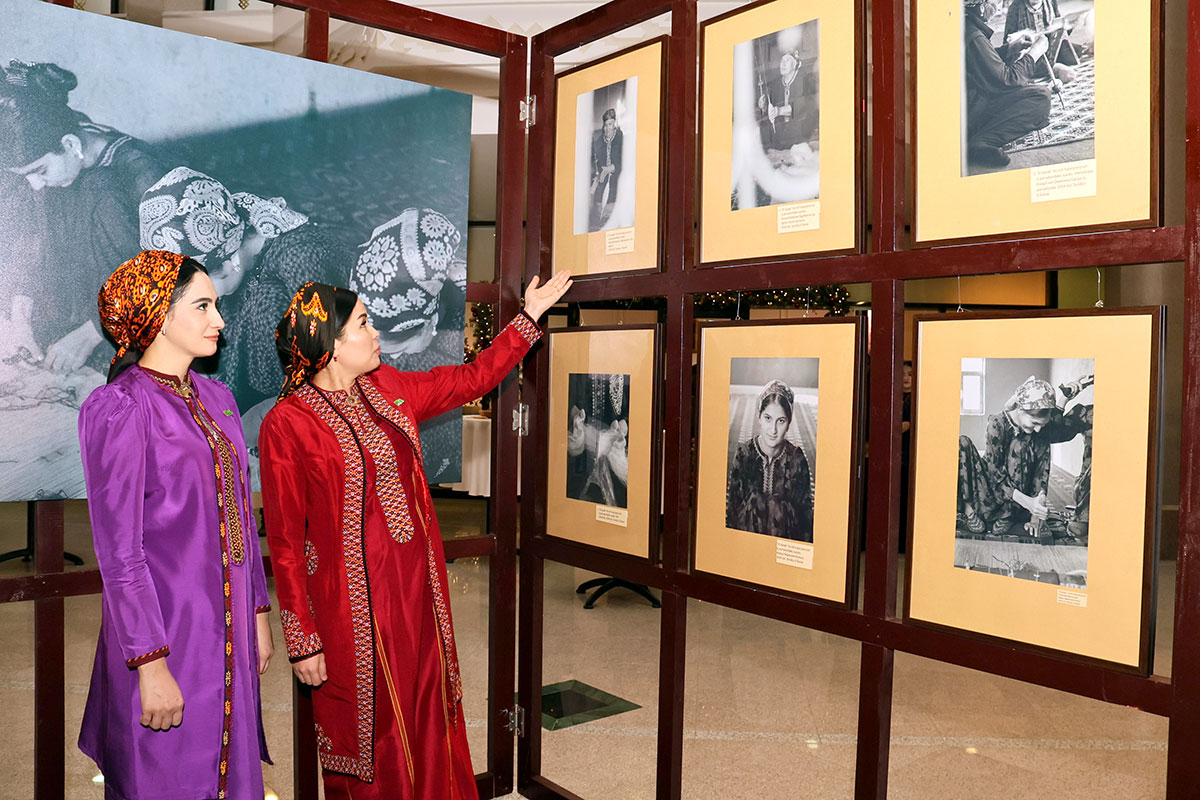The continuation of the scientific-practical conference "Issues of the Formation of National Crafts and World Practice," which took place in the conference hall of the State Museum of Fine Arts, was an exhibition of works of folk and applied art.
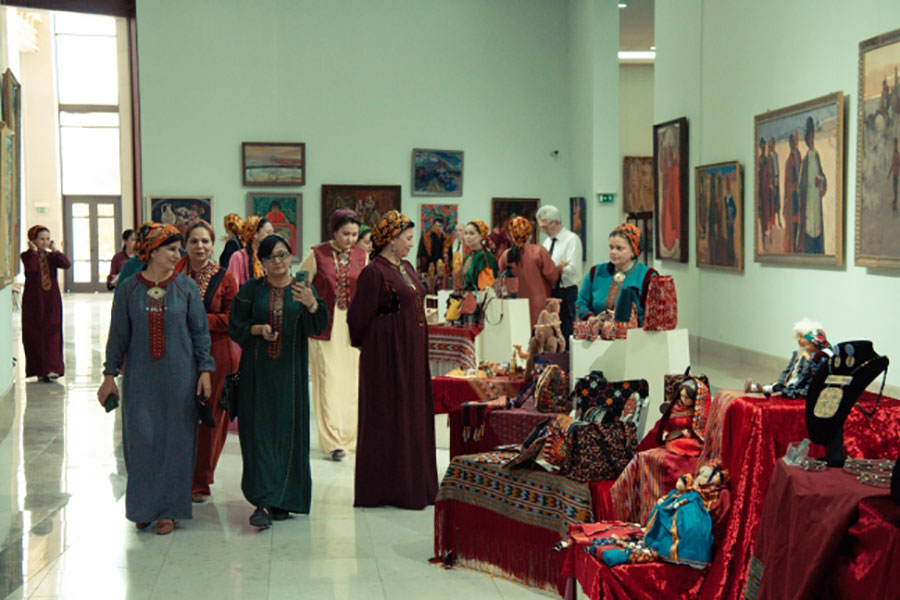 |
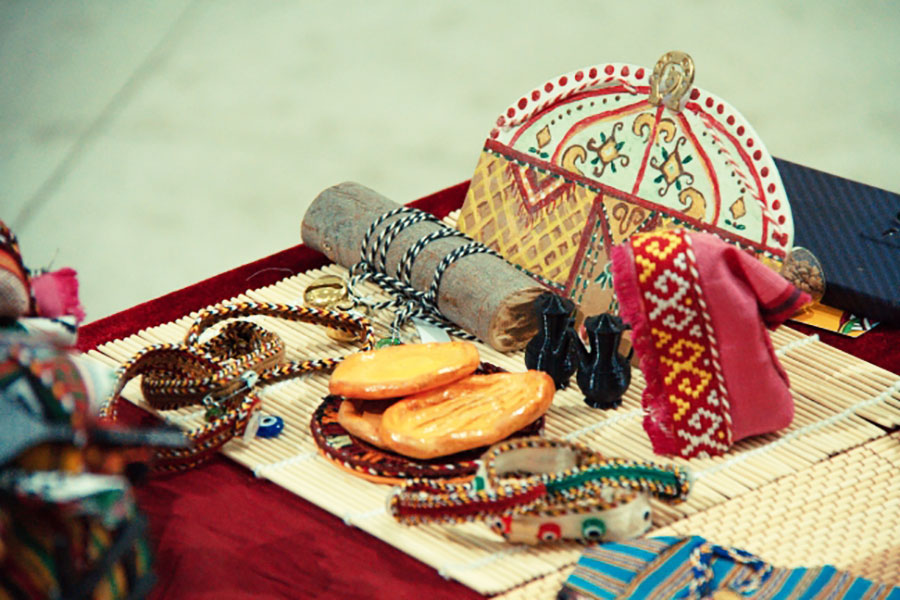 |
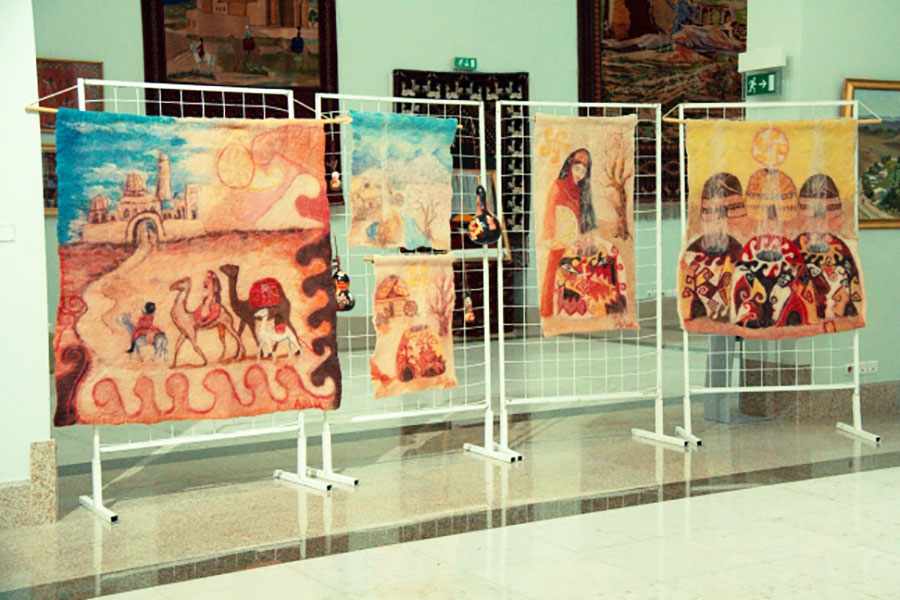 |
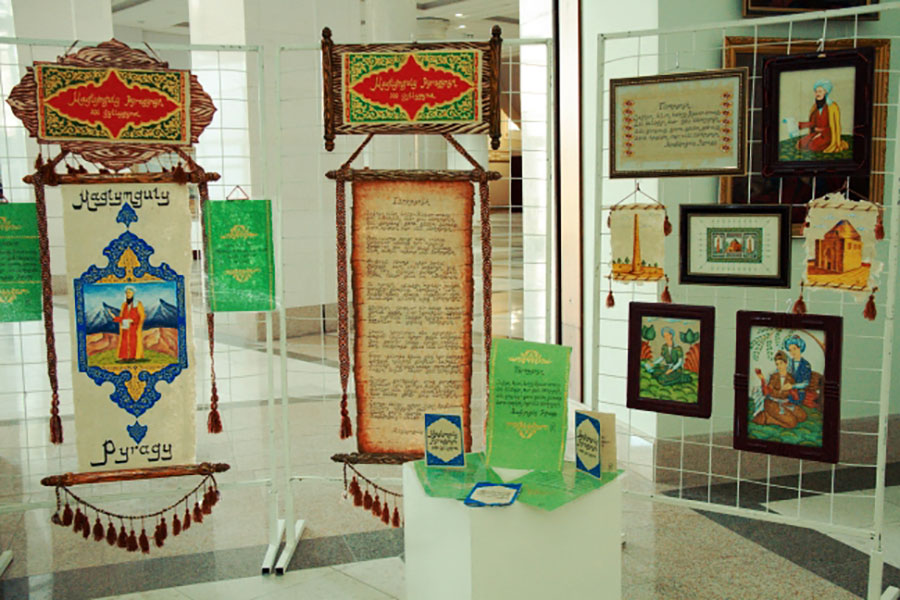 |
Sixteen of the best craftsmen of Turkmenistan shared their handicraft skills in areas such as jewelry, leatherwork, embroidery decorations and accessories, the world of toys, and more. Tatyana Golovchenko presented her collection of ethnic toys: camel figurines, angels (perishte), dolls, horses, dzhigits, various charms and amulets that are widely used at weddings and in homes. The purpose of her souvenirs is to bring joy to people. Each item combines a modern motif with a national one.
Tatyana explains her hobby by the fact that she worked for many years in the textile industry, where a large number of good fabric scraps were left over. It was a pity to throw such good material away, so it needed to be used somewhere, and with skillful hands, the problem resolved itself.
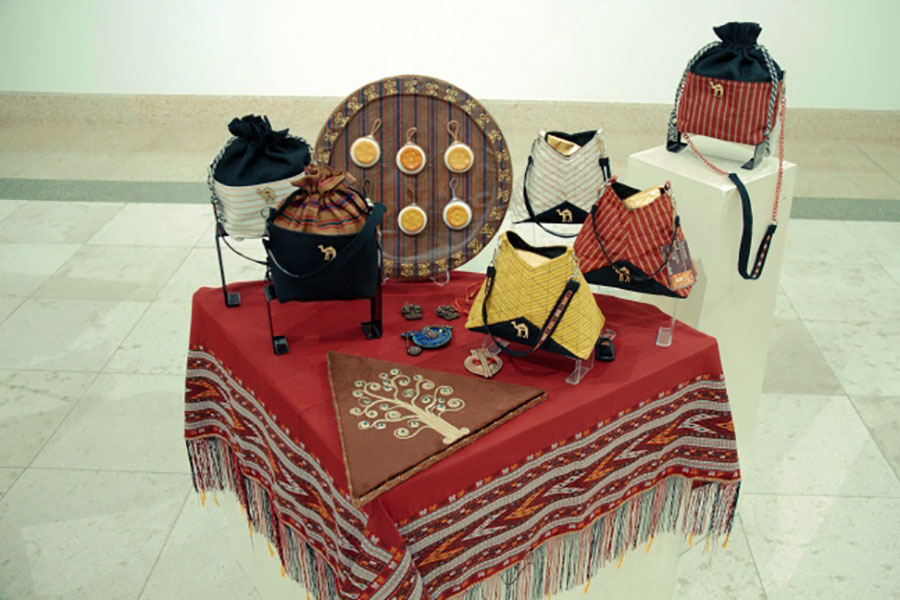 |
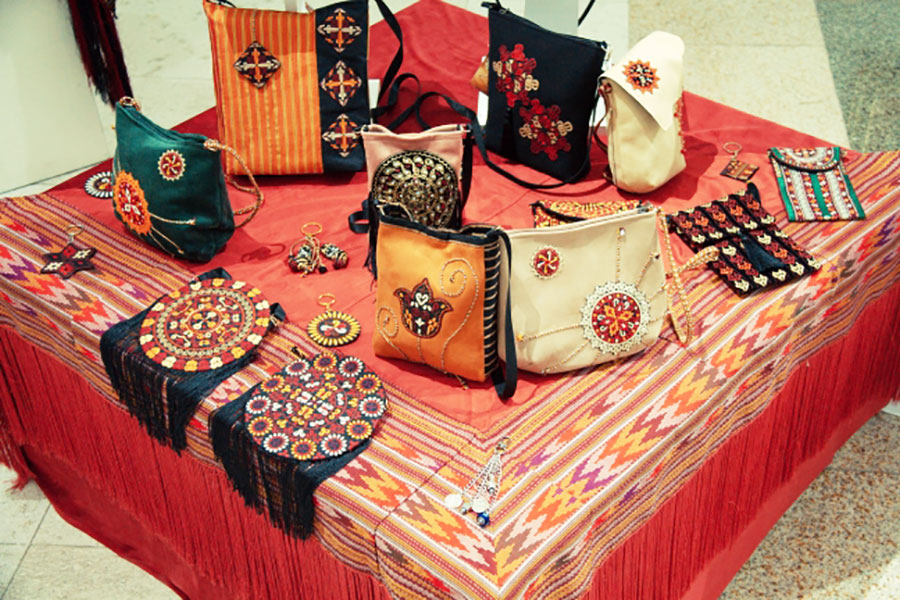 |
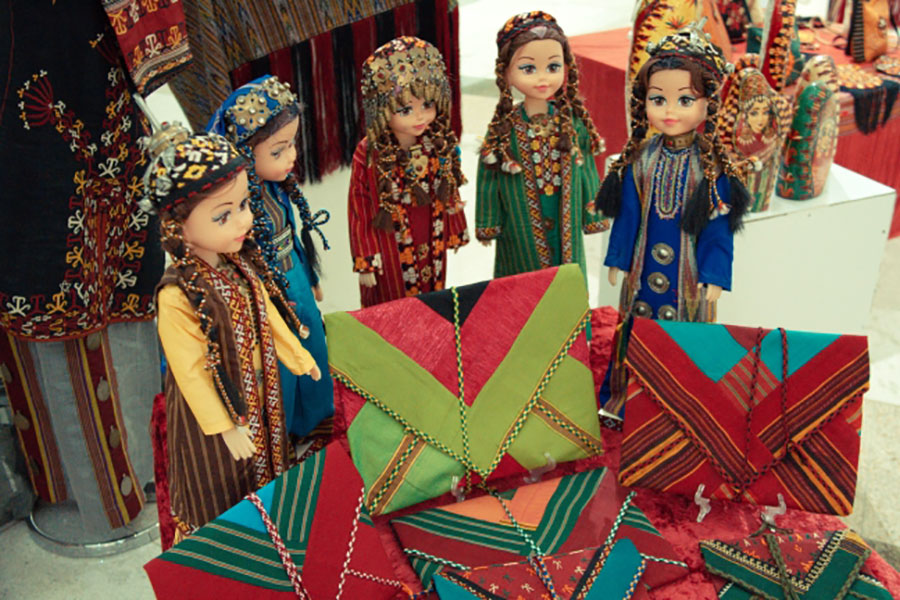 |
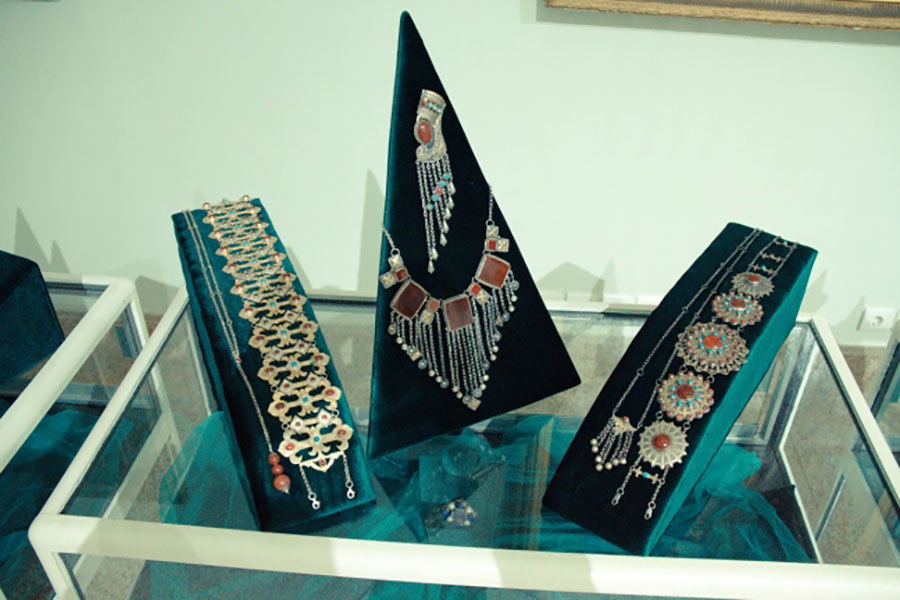 |
Andrei Medvedev, an archaeologist, until recently worked at the historical and cultural reserve "Nisa" and in the Turkmen-Polish expedition in Sarahs during the excavation of the Mele-Heyran temple. The artifacts found influenced Andrei in terms of the creativity of Central Asian craftsmen. He wanted to replicate the process and achieve the same result. He had to delve into literature in search of methods of old technologies for making leather products. Thus, one by one, leather-covered flasks for liquids appeared. They are decorated with a pattern reminiscent of Turkmen gyols. The flasks are treated inside and on top with beeswax, making them suitable for drinking. Among the exhibited items is a serkech, a case for storing dishes.
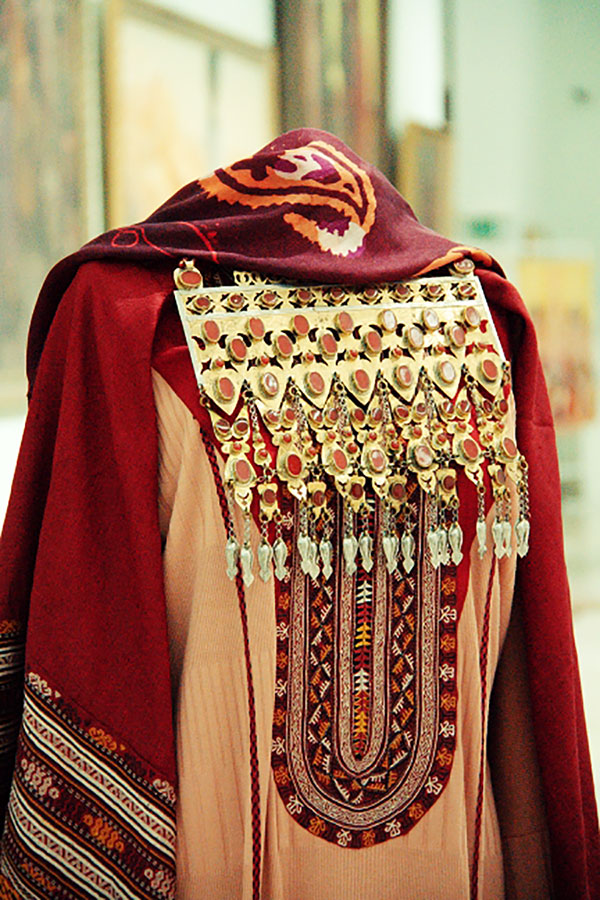 |
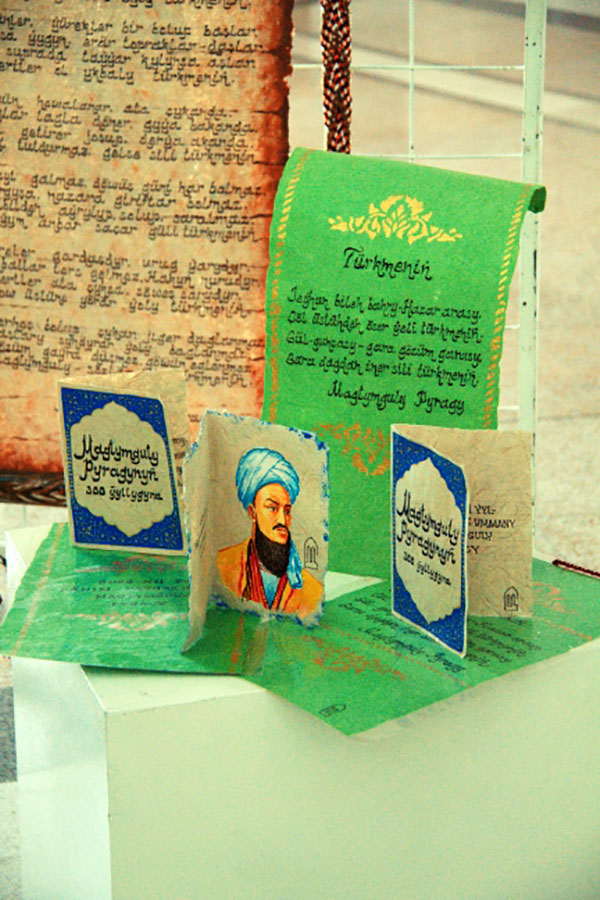 |
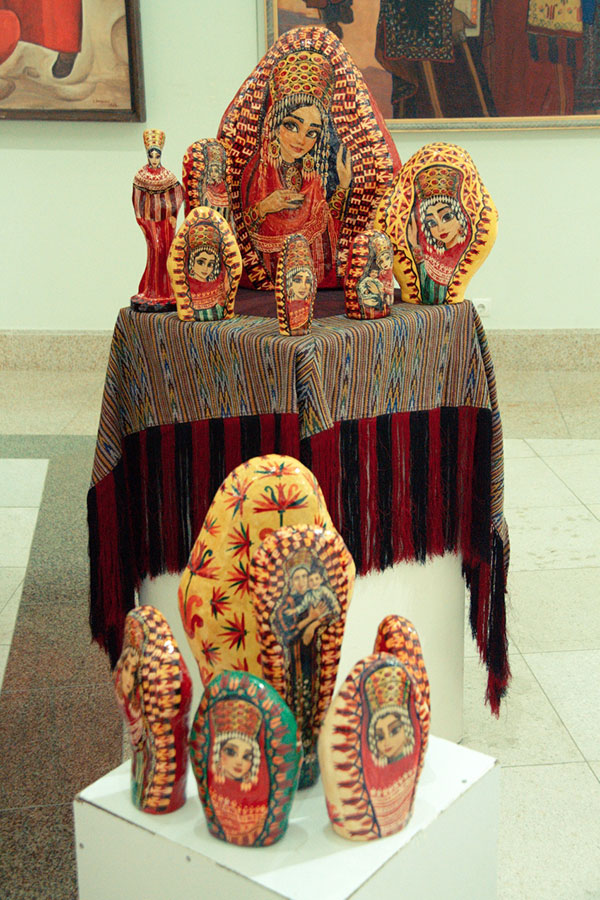 |
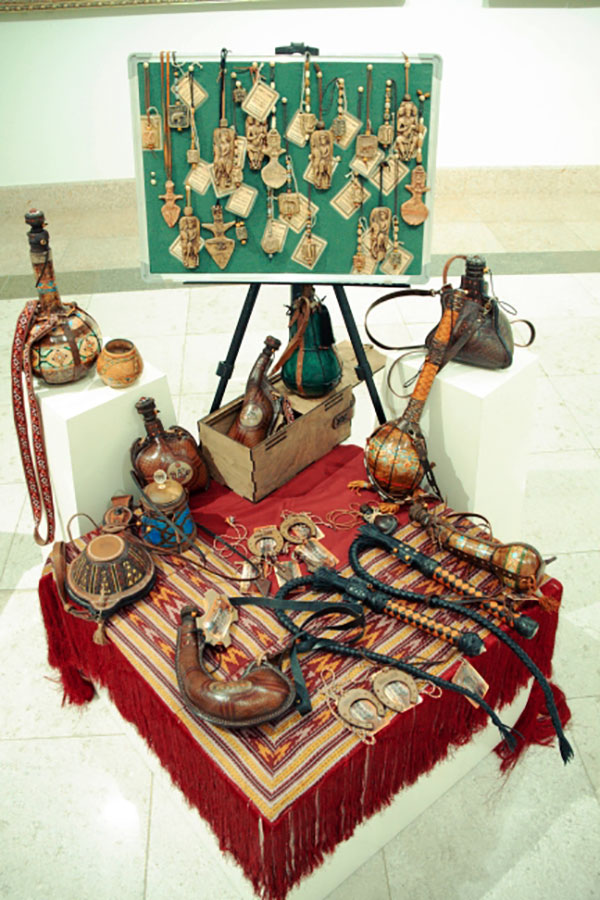 |
Medvedev's collection includes copies of various discovered artifacts. Incidentally, the originals of some of them are exhibited in the Museum. However, perhaps the most surprising exhibits were presented by Gayrat Matkarimov from Dashoguz. He showcased handmade paper made from mulberry trees. In ancient times, in Kunya-Urgench, craftsmen made such paper, whose durability could withstand a millennium. Gayrat dedicated his exhibits to the 300th anniversary of Magtymguly Fragi, creating several drawings of the poet and writing the poem "Türkmeniň" on the handmade paper.
Other talented craftsmen also presented their works. The passion of these people, their concern for forgotten technologies, and their desire to revive crafts lost over time are admirable. Each participant in the exhibition has the golden hands of a master. We are proud to have such people among us.








